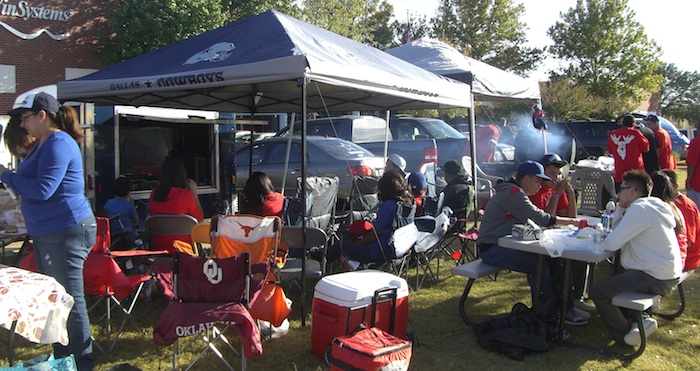| In addition to attending live games fans will often gather in groups to have game day parties,
tail gate outside the stadium or get together at sports bars. This convergence of culture continues as fans
are now able to engage in online Fantasy Football Leagues, sports forums via Facebook and team websites,
and sports television and radio. This allows for greater participation and interaction with the team and other
fans. Rose believes there is no longer a distinct line between medium, content, producer and user (272).
Fantasy football is a prime example of this blurred mix of media. It is a relatively new addition to sports
fandom and is meant to enhance and supplement the sports fan lifestyle. Fantasy football users manage up to
fifteen players that make up their online fantasy team. Each week users compete against other members in their
league and points are won by analyzing actual plays made by the athletes in real games. Users can keep track of
their teams on the go through their cellphones, or tablets. The convenience of portability affords users to easily access the network at all times.
This allows them to integrate this activity into every other area of their life and results in higher level of interactivity and personalization (Chan-Olmsted and Park qtd. in Farquhar, 1210).
Studies have shown several common motivations for participation in online fantasy leagues.
These include personal utility, passing time, information seeking, convenience and entertainment (Farquhar, 1210). Studies show success of a fan's fantasy league results in the same satisfaction and
feeling of accomplishment felt when the fan's actual team wins. The online game environment, however,
has an added bonus in that an element of role-play allows users to temporarily escape their reality and provides a new experience not available to them otherwise (Randle, 148). |

